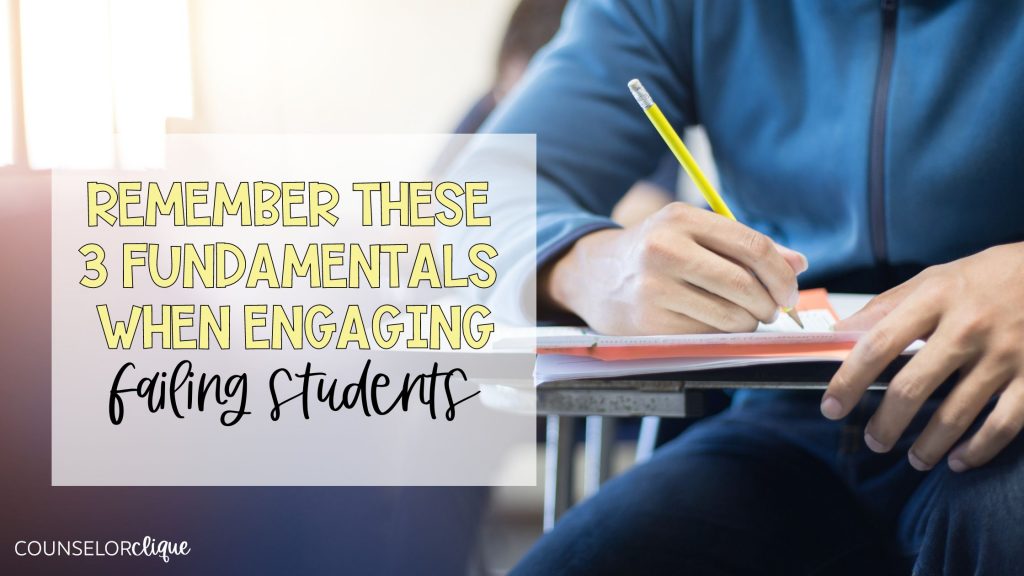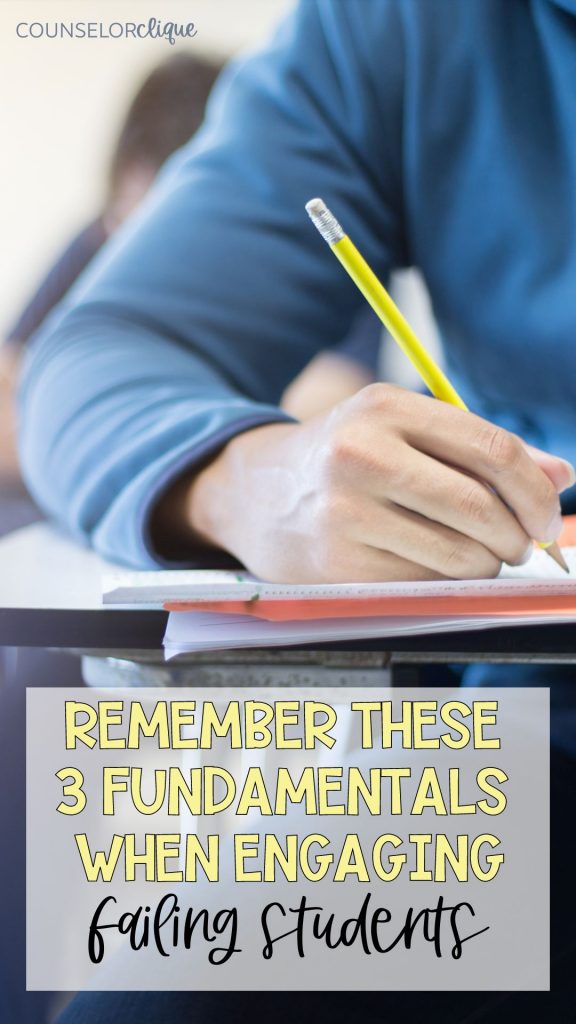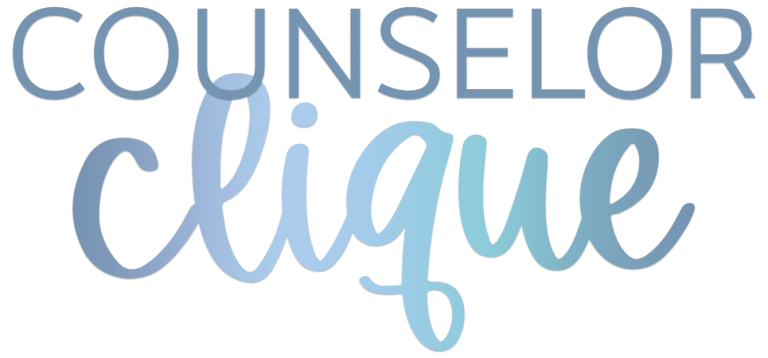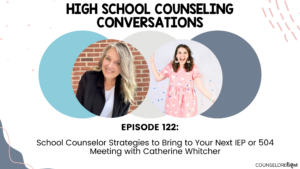With huge caseloads of students, outsiders may be surprised by the amount of time high school counselors spend with our failing students. Whether we’re calling their cell phones to discover why they’re absent, attempting to track down parents, or memorizing their schedules and requirements for graduation, we tend to get very familiar with the habits and needs of these students. While helping our highest-need students can feel discouraging, or, at times (admittedly), hopeless, let me remind you of three fundamental truths to consider in helping our failing students find success.

Use individual counseling sessions to communicate care and curiosity with failing students
When it comes to failing or off-grade level students, a curious counselor is a caring counselor. We should be searching for what is at the core of their struggles, recognizing that trauma may very well be at its root. Individual counseling sessions can be the perfect platform for engaging these students. Remember, our failing students may experience current or past situations of poverty, unstable housing, physical or emotional abuse, divorce, violence, addiction, or pregnancy. Sadly, the list goes on.
As counselors, we have the opportunity to remind our students we care about them by showing up for them. It’s amazing the impact one intentional individual can have on a person’s life. Your support could go a long way in their life — so don’t grow weary in your efforts!
Ask yourself these questions: am I showing up for this student? Am I asking questions to understand root issues? Am I caring about their progress? If the answer is yes, you’re doing your job! Their success does not rest on your shoulders… but being a supportive, caring person does. This article on the ASCA on Supporting Traumatized Students (you must be logged into your ASCA member account to read this) is a great resource to review.
For your senior students, use senior meetings as a gateway to intentional conversations, recognizing the definition of success will vary for each student. It is very possible that no one has even asked these students to consider what success is for them. Many failing students are often in survival mode, making long-term goals nearly impossible to consider. Creating space for them to look beyond today and guiding them in that process is key.
Use small group counseling to leverage peer connections among failing students
Keep in mind that running a small group with failing students doesn’t have to be academic; consider common threads among your low-performance students that may be worth exploring in a small group setting. Perhaps a small group on grief and loss could give students tools to work through emotional complexities in their lives. Many students may benefit from a small group on career exploration or stress management. They will also gain so much from their peer-to-peer interaction and connection.
I have tons of small group resources on my TpT store; and be sure to check out podcast episodes 8, 9, and 10 for all you need to know about running small groups like a pro.
Use other staff and faculty members to help build relational support for failing students
We all know how powerful human connection can be. Often, this is what is lacking among failing students. Use your relationships with faculty and staff to help put safe, supportive people in place for a student who may lack the skills to do this themselves. The goal is to create a landing place for them to be supported by someone else other than you. Whether it’s a resource officer, custodian, club sponsor, or teacher, invite others in to rally around these students.
Sometimes just having someone know their name in the hallways can be such a comfort to our students. Since attendance is often a concern, helping failing students establish healthy relationships within the school building may encourage them to actually show up.
I know, at times, supporting failing students and helping them find success can feel like a fruitless task. But trust me when I say, your work with these kids matters. You are doing good, meaningful work even with your toughest students.
Want to listen to more thoughts on helping failing students? Check out Episode 47 of High School Counseling Conversations called “3 Ways to Help Your Failing Students Find Success.”
For more conversations on the tough stuff like this, be sure to get on the waitlist for the Clique Collab, my high school counseling membership which packed full of high school counseling resources, exclusive professional development opportunities, and more.






